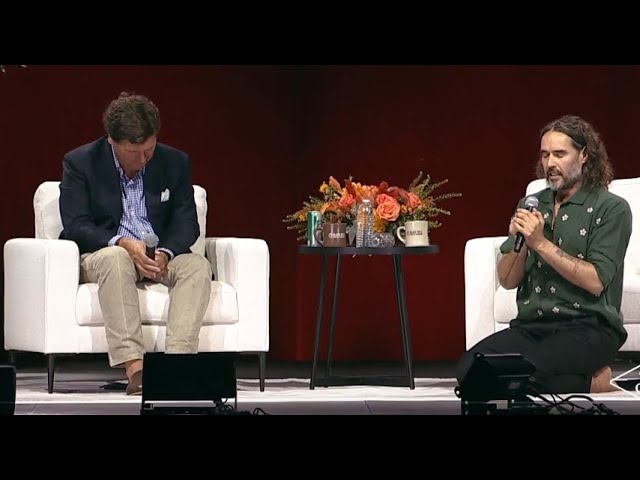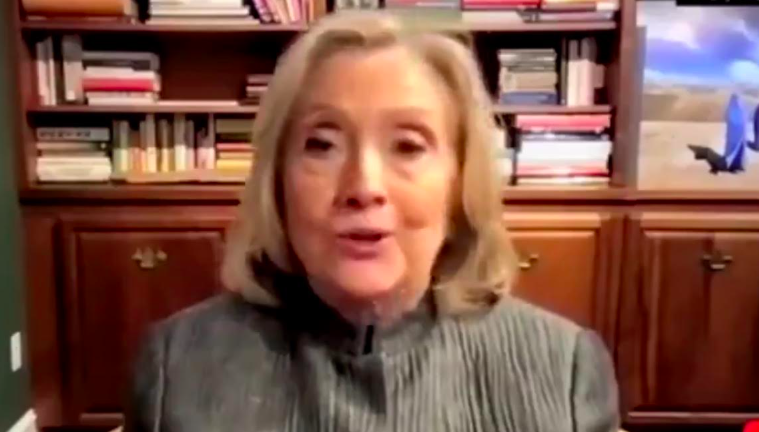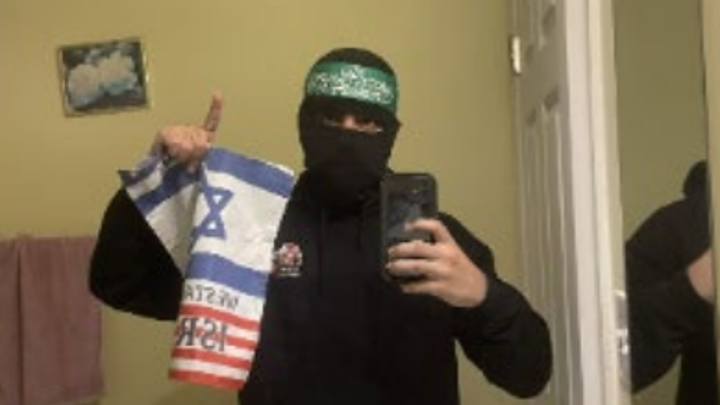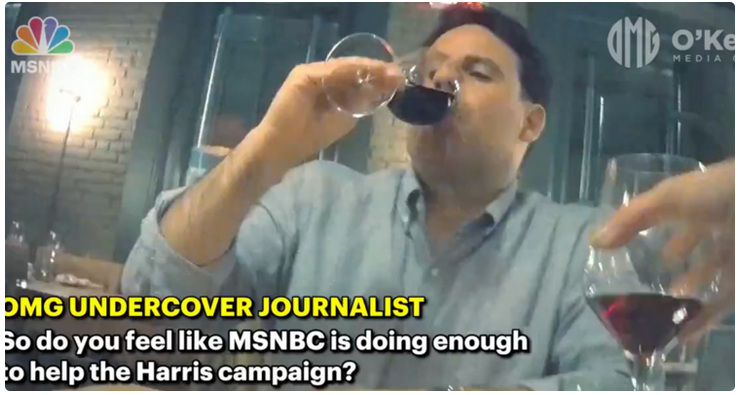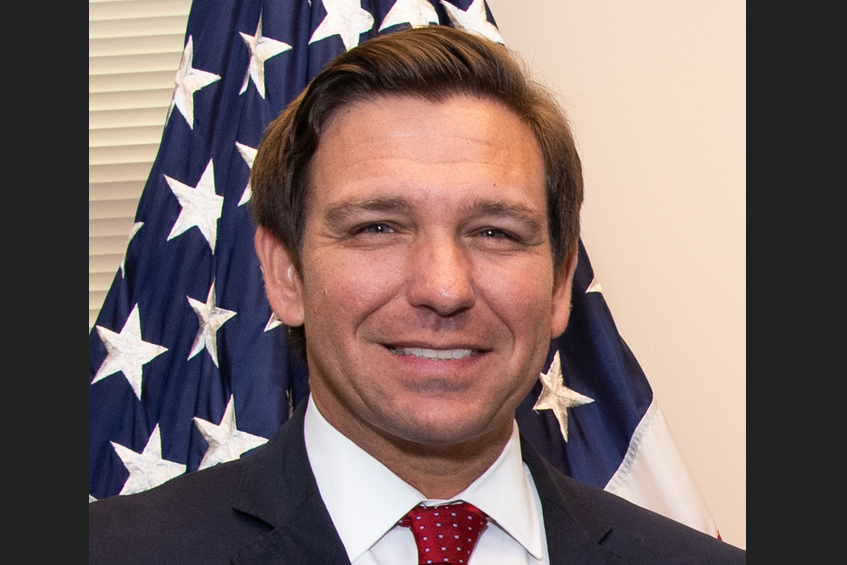In a captivating interview during Tucker Carlson’s 16-city tour, actor and comedian Russell Brand opened up about his recent conversion to Christianity, reflecting on his spiritual journey and the transformative power of faith. The conversation took place in front of a live audience in Arizona, as part of Carlson’s national speaking tour, which features notable political figures from the right, including Donald Trump Jr., Rep. Marjorie Taylor Greene, Tulsi Gabbard, and entrepreneur Vivek Ramaswamy.
Brand, known for his outspoken and often provocative views, spoke earnestly about his newfound faith in Christ and how it has reshaped his understanding of life, purpose, and identity.
A Surprising Journey to Faith
During the interview, Brand described his spiritual awakening as a deeply personal and surprising journey. “Christ chooses us. We have been chosen,” Brand told Carlson. “I wish I had known earlier. I wish I hadn’t thought that I was too clever for the religion of my grandmothers.”
The actor and comedian, who once embraced a lifestyle of hedonism and rebelliousness, admitted that he had long dismissed religion as something outdated and irrelevant. However, in recent years, Brand has undergone a dramatic transformation, exploring spirituality more deeply and ultimately embracing Christianity.
Brand’s comments struck a chord with many in the audience, particularly as he reflected on his own past skepticism of faith. “I was always drawn to spirituality but never really understood it until recently. I used to think I was too smart for religion, that it was something for people who weren’t intellectual. But now I see that I was the one missing out.”
The Role of Faith in a Troubled World
As Brand and Carlson delved deeper into the discussion, the conversation turned to the broader societal role of faith. Carlson, who has been vocal about the importance of traditional values and religious belief in American life, asked Brand how he views the state of faith in a world increasingly marked by secularism and political polarization.
Brand expressed his belief that faith, particularly Christianity, offers a source of hope and moral guidance in an era of confusion and division. “What I’ve realized is that people are yearning for something deeper, something beyond just materialism and the endless cycle of consumption. Christianity offers that. It gives us a framework for understanding who we are and what we’re here to do.”
He emphasized that his own spiritual journey is ongoing, but that Christianity has provided him with a newfound sense of peace and purpose that he hadn’t found elsewhere. “For me, it’s about humility—realizing that there is something greater than ourselves, that we’re not the center of the universe. It’s been incredibly liberating.”
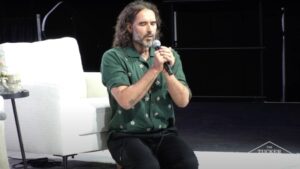
Carlson’s Tour and Focus on Faith
Tucker Carlson’s tour, which includes stops in key battleground states, is aimed at fostering conversations on politics, culture, and faith. In recent years, Carlson has become a prominent figure on the right, known for his strong defense of traditional American values, freedom of speech, and opposition to political correctness.
In Arizona, the conversation with Brand was notable for its focus on spirituality, in contrast to the more overtly political discussions expected with other guests on the tour, such as Donald Trump Jr. and Vivek Ramaswamy. Carlson, who has previously expressed concern about the decline of religious values in America, praised Brand for his candidness and willingness to share his journey.
Reactions to Brand’s Conversion
Brand’s public conversion to Christianity has generated significant interest, particularly given his previous image as a countercultural icon who challenged social norms. Many have expressed admiration for his courage in speaking openly about his faith in a cultural landscape that often marginalizes religious belief.
However, his conversion has also sparked debate, with some questioning whether Brand’s embrace of Christianity is genuine or part of his evolving public persona. In response, Brand has been clear that his journey is deeply personal and not driven by external motivations. “This is something that came from within, not from any external pressure or expectation,” he said during the interview.
Brand’s openness about his faith appears to have resonated with many, particularly among audiences who share concerns about the increasing secularization of society and the erosion of moral values. His comments on the role of faith in his life and his desire to reconnect with the traditions of his family struck an emotional chord.
Looking Ahead
As Carlson’s tour continues across the country, his conversations with figures like Brand provide a unique window into the intersections of politics, culture, and faith in modern America. Brand’s willingness to discuss his spiritual journey, particularly in front of a predominantly conservative audience, highlights the enduring relevance of religion in shaping personal identity and guiding societal values.
For Brand, the road to faith is an ongoing process, but one that has brought him clarity and direction. “I’ve realized that life is not about self-glorification or endless pursuits of pleasure,” he said. “It’s about service, humility, and connecting with something greater than ourselves.”
With Carlson’s tour continuing through key states, including stops with figures like Rep. Marjorie Taylor Greene and Tulsi Gabbard, the conversation around faith, politics, and identity is sure to remain central to the national dialogue. As more public figures like Brand share their own experiences with faith, the role of religion in America’s future may be more significant than ever.

